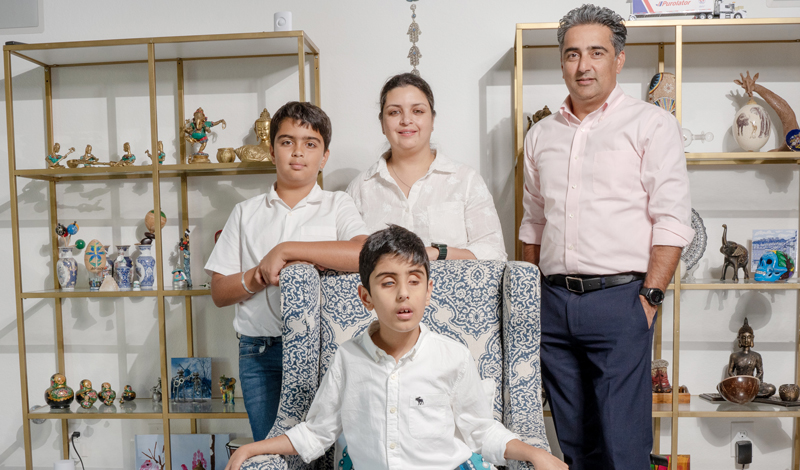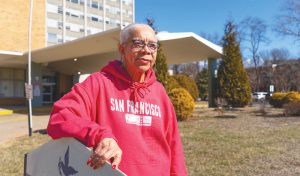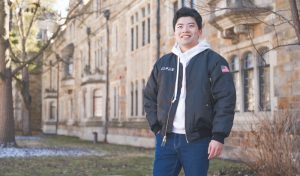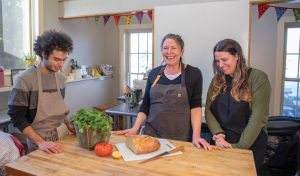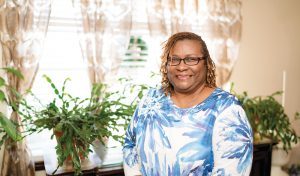by Shivani Chaudhary
Houston
Sitting on the floor with my 1-year-old son, Yuvraj, trying and failing to encourage him to sit up, I turned over once more the questions that clamored day and night in my head, deafening as they were insistent: Why me? Why my son? Why this affliction? Why?
Something pressed my shoulder gently: my husband’s hand.
“I said the sitter’s here, Shivani.” When I looked down at our son, kicking weakly in my lap, he added, “Come, it’s just one lunch, one afternoon. They’re looking forward to seeing you.”
These words, meant as encouragement, sent a kind of dread through me; the Shivani our friends were looking forward to seeing, the one they’d seen last, six years earlier, chirpy, happy-going, coming to port off the coast of Lisbon under blue skies, on favorable winds, no longer existed. I wondered if they would recognize the defeated person who’d arrived here in Singapore, a person so engrossed with her own misfortune that she didn’t register when people were speaking to her. I patted my husband’s hand and reluctantly rose.
A year earlier, in June of 2013, Yuvraj had been born prematurely with a severe visual impairment. At first, the doctors were confident he’d recover, but at nine months, after many failed operations, they declared him permanently blind. My husband, Mitush, a merchant naval officer with whom I’d gaily sailed the world for years, decided to come ashore for good, to support me in finding services for Yuvraj, a decision that stationed us in Singapore in February 2014.
Children with working eyes learn through observation; they see something—a brightly colored ball, for instance—and are stimulated to touch it, slap it, learn about it. This is how they gain strength, coordination and confidence. But for Yuvraj, the world was a frightful mystery. I spent my days agonizing over the puzzle of how to stimulate him to engage his environment. There were scant resources available for visually impaired infants in Singapore. On my own, the going was painfully slow and uncertain. It was here, where I had few friends, that I became completely engrossed with Yuvraj’s predicament and deaf to all but the incessant internal question, Why me? Somehow, though, a few words did reach me. Our first summer in Singapore, a concerned friend in India texted me the following quote from the Buddhist philosopher Daisaku Ikeda. It began: “Reality is harsh. It can be cruel and ugly. Yet no matter how much we grieve over our environment and circumstances nothing will change. What is important is not to be defeated, to forge ahead bravely” (daisakuikeda.org).
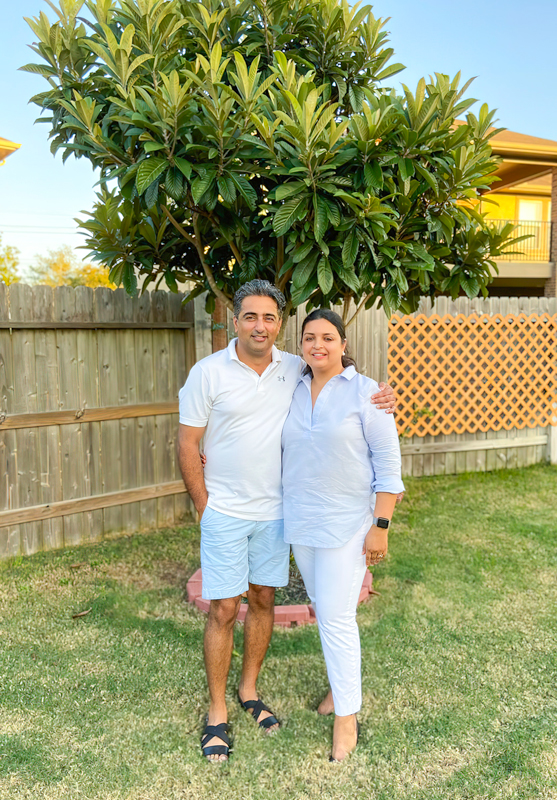
I’d actually been to an SGI meeting, just once, when I was a student in college. I recalled now the upbeat chanting of Nam-myoho-renge-kyo before a mandala—the Gohonzon—hung within a wooden altar. I asked this friend to connect me with the SGI in Singapore. She made some calls, but some weeks passed and no one reached out. On the way to the lunch with our friends from Lisbon, my thoughts were on Yuvraj, and on the little message, the little Buddhist warning: “Reality is harsh.”
When we arrived, I forced a smile, convincing no one. However, as we passed through the living room, I gasped at the sight of their altar. “SGI?” I asked.
“Yes!” they said.
I went that day to my first SGI meeting and began chanting daily. Every day—
and I mean every day—for months on end, my district women’s leader bussed to my house on her lunch break to chant and study Buddhism with me. We didn’t read any theory at first, just people’s faith experiences. “You see?” she’d say. “This person totally transformed their karma and became happy! Why not you? Why not your son?”
“This person totally transformed their karma and became happy! Why not you? Why not your son?”
Slowly, I gained inner strength, confidence and resolve. Seen through the Buddhist lens, I had no cause to lament; my obstacles were opportunities to reveal my true potential and life mission. Furthermore, Buddhism does not believe in coincidence. Speaking of his own family, Nichiren Daishonin says, “It is no doubt because of karmic forces that they became my parents, and I, their child” (“Letter to Jakunichi-bo,” The Writings of Nichiren Daishonin, vol. 1, p. 993). In this sense, Yuvraj had chosen our family and his condition in order to fulfill his mission and teach us how to become absolutely happy. I stopped asking Why, and began asking the better question, How? How could I help Yuvraj fulfill his potential?
I had heard from a friend in the SGI, a mother of a visually impaired child, that the United States offered excellent early-intervention services for visually impaired infants. I began chanting to move to the U.S.
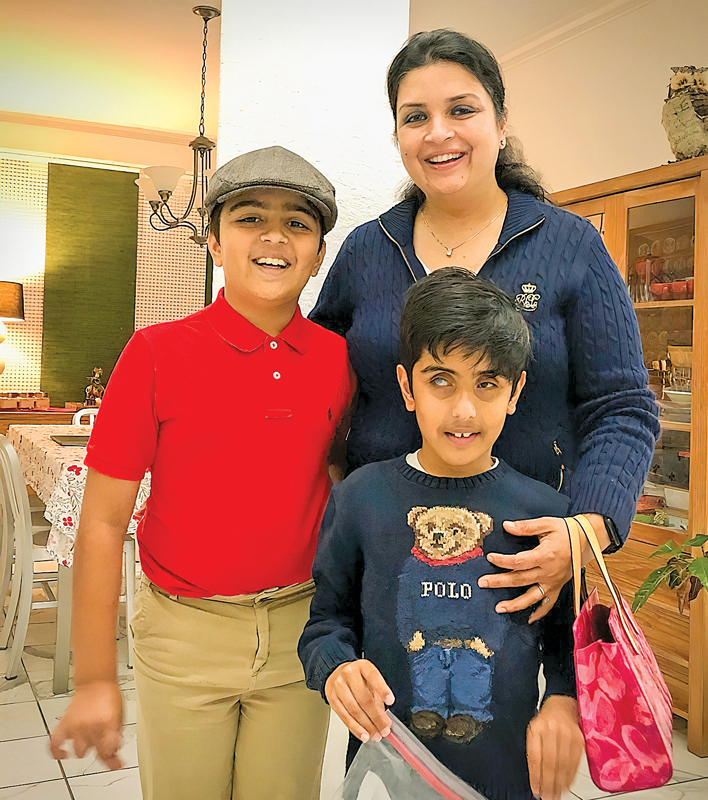
A few months later, in September 2014, my husband’s employer announced a job opening at their branch in Houston. Understanding that this was exactly what I’d been praying for so fervently, my husband quickly applied. A few weeks later, his request was turned down; the job was reserved for those with a high level of experience in the field. I continued to chant intensely that Yuvraj would receive the best care in order to fulfill his mission. A few months later, in January 2015, Mitush’s work held a dance. There, amid much merriment, it was suddenly announced that Mitush had been given the Texas job! We relocated there in April the same year.
Within our first few days in Houston, I put out a call letting the state know that I had a visually impaired toddler. On the tenth day following that call, five therapists showed up to our house, one after another, to work with Yuvraj. Watching them, I saw what I had begun to expect through my Buddhist practice: that Yuvraj was no less capable than children with working eyes; he simply had his own ways of learning. By the age of 3, he was fully caught up with his peers.
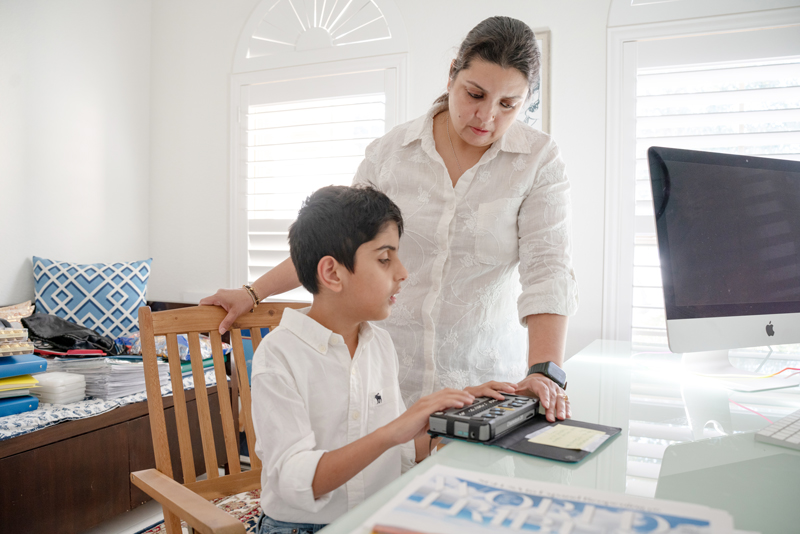
As it turns out, Yuvraj is a comedian. Now, at age 9, his teachers remark that he has such a positive aura that when he is absent from school, something feels palpably missing. Every day has its challenges, but Yuvraj meets them head-on. In fact, his primary concern is the happiness of others. The other day, I asked, “What is blindness, Yuvraj?” and he shrugged. “Having no vision,” he said. Then, firmly, “Never feel: I can’t do this. You can do anything.”
For him, a better question is the one he asks me daily, first thing when he gets home from school. “Mom,” he calls, “are you happy?”
“What a good question,” I say. “You know the answer.”
You are reading {{ meterCount }} of {{ meterMax }} free premium articles

